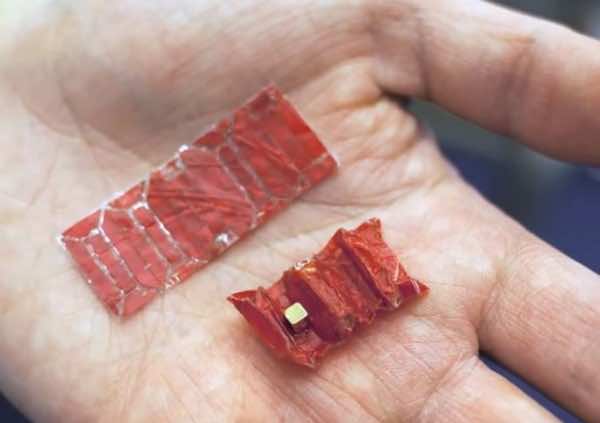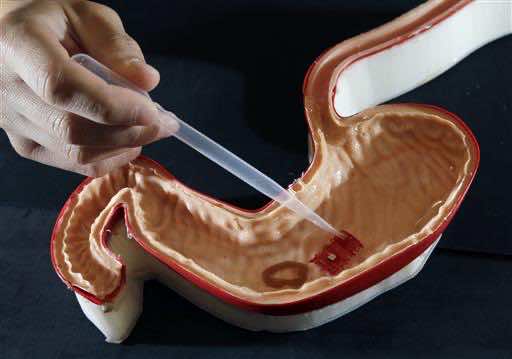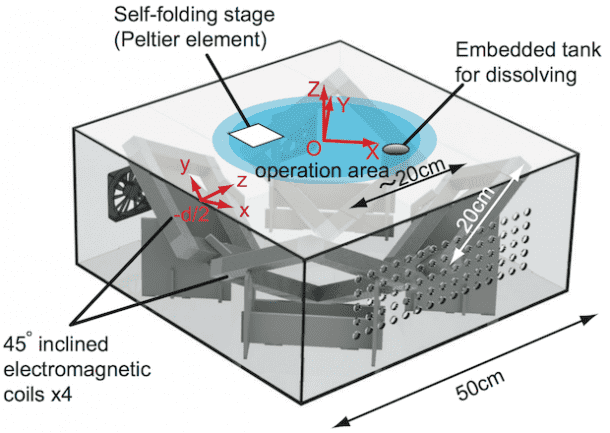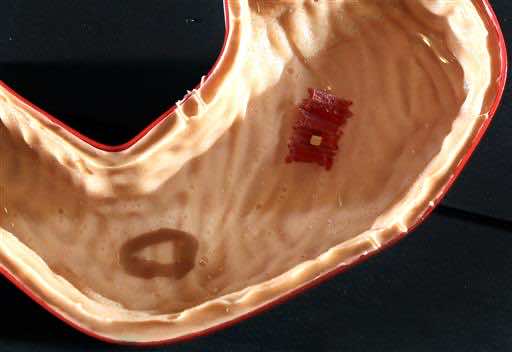The research team from MIT is working on an ingestible robot designed from the pig gut. The team aims to use this robot for fixing wounds, medicine delivery or expelling a foreign object from the body.


The project is called “origami robot” owing to the fact that this accordion-shaped robot can be folded and frozen as an ice pod. Daniela Rus, an MIT professor, involved with the project told:
“You swallow the robot, and when it gets to your stomach the ice melts and the robot unfolds. Then, we can direct it to a very precise location.”
Albeit being a long way from use in the live animals and humans, the gadget is being tested inside an artificial stomach styled with silicon. Rus believes that one of the critical applications of the origami robot will be to find and expel disc-shaped batteries swallowed by the toddlers.

These cells are widely used to power various electronic toys and, if ingested, can burn the stomach lining. The origami robot can capture such fatal objects, pushing them down the gastrointestinal tract and finally expelling them from the body.
The robot’s skeleton is designed using the dried pig intestine which is also used to make sausages. The researchers wanted to make a biodegradable structure and tried various materials before settling for the pig gut:
“ [We] tried rice paper and sugar paper and hydrogel paper, all sorts of different materials. We found that sausage casing has the best properties when it comes to folding and unfolding and controllability.”
A neodymium magnet is fixed inside the robot. Thus, the robots movement is controlled and guided by the magnetic forces. The team conducting the study used remote-control joysticks to alter the magnetic field.

This way, the robot is guided towards its destination; whether it is an object to be retrieved or a site for drug delivery.
The robot ingestion will be virtually harmless; a graduate student in mechanical engineering said:
“I’m sure if you swallowed an ice cube accidently, it’s very similar,”
The researchers presented their research at a robotics conference in Sweden. Rus has already been approached by various medical companies while the patent is yet to be filed.

A mechanical engineering professor at Tufts University, William Messner believes that the project may potentially be used in performing biopsies.
The project hails from the field of soft robotics which is increasingly becoming popular. The researchers are trying to come up with the latest flexible, moving machines for potential clinical applications including use in surgery.


